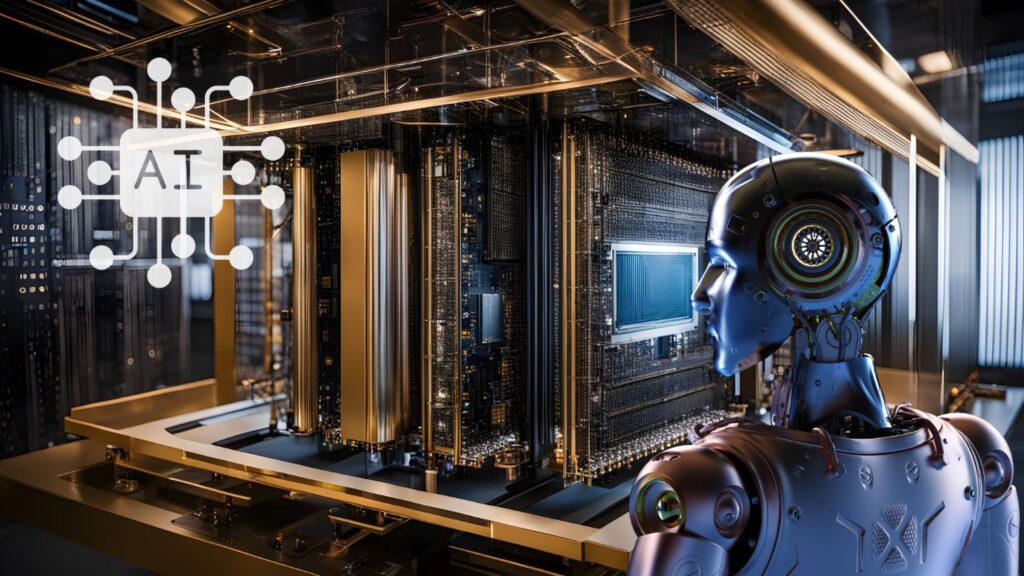Table of Contents
Introduction
Artificial intelligence (AI) is a rapidly evolving technology that has the potential to transform various aspects of human life, such as education, health, entertainment, and communication. However, AI also poses a significant challenge to the future of work, as it could automate and replace many human tasks and jobs. According to a recent report by Goldman Sachs, generative AI tools, such as ChatGPT and Google’s Bard, could impact 300 million full-time jobs worldwide, which could lead to a “significant disruption” in the job market.
What is Generative AI?
Generative AI is a form of artificial intelligence that can create text or other content in response to user prompts. For example, ChatGPT, developed by OpenAI, is a chatbot that can generate natural language texts for various purposes, such as writing essays, code, stories, jokes, and more. Google’s Bard is a similar tool that can also generate texts based on user inputs. These tools use deep learning models that are trained on large amounts of data to learn the patterns and rules of natural language.
Which Jobs are Most at Risk?
While some jobs may benefit from the use of generative AI tools, such as enhancing creativity, productivity, and efficiency, others may be threatened by the automation and replacement of human tasks. According to experts and research, some of the jobs that are most at risk of being affected by generative AI are:
- Tech jobs: Coders, software developers, web developers, computer programmers, data scientists, and other tech-related jobs may be displaced by generative AI tools that can write code, analyze data, and debug errors. For example, Google found that ChatGPT could pass an entry-level coding interview at the company. Moreover, Amazon employees who tested ChatGPT said it could answer customer support questions, make training documents, and answer queries around corporate strategy.
The following table shows the projected percentage change in employment for some tech occupations from 2019 to 2029, according to the U.S. Bureau of Labor Statistics:
| Occupation | 2019 Employment | 2029 Employment | Change (%) |
|---|---|---|---|
| Software Developers | 1,469,200 | 1,816,000 | +23.6 |
| Web Developers | 174,300 | 210,700 | +20.9 |
| Computer Programmers | 213,900 | 199,200 | -6.9 |
| Data Scientists | 31,700 | 37,700 | +18.9 |
| Database Administrators | 116,900 | 123,200 | +5.4 |
- Media and marketing jobs: Writers, journalists, editors, content creators, marketers, and other media-related jobs may be affected by generative AI tools that can produce texts for various purposes. For example, ChatGPT has been used to write cover letters, create a children’s book, and even help students cheat on their essays. Moreover, generative AI tools could also generate fake news, misinformation, and propaganda that could undermine the credibility and trustworthiness of media sources.
- Legal services jobs: Lawyers, paralegals, legal assistants, and other legal-related jobs may be impacted by generative AI tools that can draft contracts, review documents, conduct research, and provide legal advice. For example, an attorney used ChatGPT to generate a legal brief for a case involving a car accident. Moreover, generative AI tools could also pose ethical and moral dilemmas for the legal profession.
The following table shows the projected percentage change in employment for some legal occupations from 2019 to 2029, according to the U.S. Bureau of Labor Statistics:
| Occupation | 2019 Employment | 2029 Employment | Change (%) |
|---|---|---|---|
| Lawyers | 813,900 | 878,800 | +8.0 |
| Paralegals and Legal Assistants | 337,800 | 370,100 | +9.6 |
| Legal Secretaries and Administrative Assistants | 181,800 | 163,300 | -10.2 |
| Arbitrators, Mediators, and Conciliators | 6,600 | 7,400 | +12.1 |
| Court Reporters and Simultaneous Captioners | 14,500 | 15,200 | +4.8 |
- Education jobs: Teachers, tutors, instructors, and other education-related jobs may be influenced by generative AI tools that can create educational materials, grade assignments, and provide feedback. For example, ChatGPT has been used to generate math problems, write summaries, and explain concepts. Moreover, generative AI tools could also affect the quality and integrity of education.
The following shows the percentage of students who say they have used online sources to help them with their homework or school assignments in the past year in different countries, according to a survey:
- Finance and banking jobs: Bankers, accountants, financial analysts, and other finance-related jobs may be affected by generative AI tools that can perform financial transactions, manage portfolios, and provide financial advice. For example, banks have already begun incorporating AI into their business models, such as using ChatGPT to monitor transactions and give detailed financial advice on saving and spending. Moreover, generative AI tools could also pose security and privacy risks for the financial sector.
The following table shows the projected percentage change in employment for some finance and banking occupations from 2019 to 2029, according to the U.S. Bureau of Labor Statistics:
| Occupation | 2019 Employment | 2029 Employment | Change (%) |
|---|---|---|---|
| Financial Managers | 697,900 | 805,200 | +15.4 |
| Accountants and Auditors | 1,436,100 | 1,552,000 | +8.1 |
| Financial Analysts | 487,800 | 537,800 | +10.2 |
| Bank Tellers and Related Clerks | 368,600 | 326,900 | -11.3 |
| Loan Officers | 316,200 | 328,300 | +3.8 |
How to Prepare for the Future of Work?
While generative AI tools may pose a threat to some jobs, they may also create new opportunities and challenges for the future of work. Therefore, it is important to prepare for the possible impacts and implications of generative AI on the labor market. Some of the ways to do so are:
- Developing new skills: As generative AI tools may automate and replace some human tasks, it is essential to develop new skills that are complementary or superior to those of generative AI. For example, skills such as creativity, critical thinking, emotional intelligence, and problem-solving may be more valuable and in-demand in the future.
- Adapting to change: As generative AI tools may disrupt and transform various industries and sectors, it is important to adapt to change and embrace new opportunities and challenges. For example, workers may need to switch careers, learn new technologies, or collaborate with generative AI tools.
- Ensuring ethical and responsible use: As generative AI tools may generate texts that are inaccurate, biased, or harmful, it is important to ensure ethical and responsible use of these technologies. For example, workers may need to verify and validate the outputs of generative AI tools, avoid using them for malicious purposes, and respect the intellectual property rights and privacy of others.
Conclusion
Generative AI is a powerful technology that has the potential to impact various aspects of human life, including work. While some jobs may benefit from the use of generative AI tools, others may be threatened by the automation and replacement of human tasks. Therefore, it is important to prepare for the possible impacts and implications of generative AI on the labor market by developing new skills, adapting to change, and ensuring ethical and responsible use.



